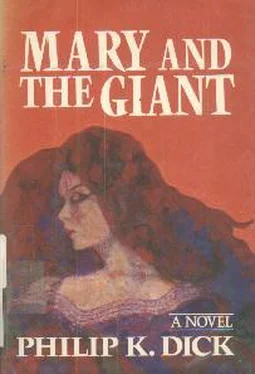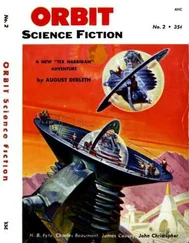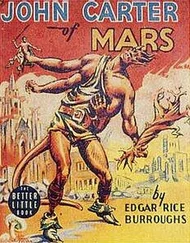Philip Dick - Mary And The Giant
Здесь есть возможность читать онлайн «Philip Dick - Mary And The Giant» весь текст электронной книги совершенно бесплатно (целиком полную версию без сокращений). В некоторых случаях можно слушать аудио, скачать через торрент в формате fb2 и присутствует краткое содержание. Жанр: Фантастика и фэнтези, на английском языке. Описание произведения, (предисловие) а так же отзывы посетителей доступны на портале библиотеки ЛибКат.
- Название:Mary And The Giant
- Автор:
- Жанр:
- Год:неизвестен
- ISBN:нет данных
- Рейтинг книги:4 / 5. Голосов: 1
-
Избранное:Добавить в избранное
- Отзывы:
-
Ваша оценка:
- 80
- 1
- 2
- 3
- 4
- 5
Mary And The Giant: краткое содержание, описание и аннотация
Предлагаем к чтению аннотацию, описание, краткое содержание или предисловие (зависит от того, что написал сам автор книги «Mary And The Giant»). Если вы не нашли необходимую информацию о книге — напишите в комментариях, мы постараемся отыскать её.
Mary And The Giant — читать онлайн бесплатно полную книгу (весь текст) целиком
Ниже представлен текст книги, разбитый по страницам. Система сохранения места последней прочитанной страницы, позволяет с удобством читать онлайн бесплатно книгу «Mary And The Giant», без необходимости каждый раз заново искать на чём Вы остановились. Поставьте закладку, и сможете в любой момент перейти на страницу, на которой закончили чтение.
Интервал:
Закладка:
Shortly before two o'clock they neared an island of lights growing by the highway. Presently the lights resolved into a Shell station, a closed-up fruit stand, and a tavern. A pair of autos were parked in the lot outside the tavern. A GOLDEN GLOW neon sign gleamed in the window; the sound of voices and laughter drifted out into the night.
Walking across the lot, Mary Anne threw herself down on the steps of the tavern. "I can't go any farther," she said.
"No," Schilling agreed, halting beside her. "Neither can I."
He went inside and telephoned the Yellow Cab people. Fifteen minutes later a cab drove into the lot and slowed to a stop beside them. The driver threw open the door and said: "Hop in, folks."
As they rode back toward Pacific Park, Mary Anne lay watching the dark highway move past. "I'm tired," she said once, very softly.
"You must be," Schilling said.
"These weren't the proper shoes." She had lifted her feet up and tucked them under her. "How do you feel?"
"I'm fine," he said, which was true. "I don't even think I'll be stiff tomorrow," he added, which was probably not true.
"Maybe we could go hiking again sometime," Mary Anne said. "When we have the proper shoes and all the rest. There's a nice place over toward the mountains ... it's up high, and you can see for miles."
"That sounds wonderful." It really did, tired as he was. "If you want, we could drive part of the way, park the car, and walk on from there."
"Here you are, folks," the driver said cheerfully, drawing to a stop in front of Mary Anne's apartment building. "You want me to wait?" he asked, opening the door.
"Yes, wait," Schilling instructed him. He and the girl climbed the stairs; he held the door open for her and she glided on inside, under the arch of his arm.
In the lobby she halted. She still had tight hold of her blue dish. "Joseph," she said, "good night."
"Good night," he said. Leaning forward, he kissed her on the cheek. Smiling, she raised her face expectantly. "Take care of yourself." he said to her. That was all he could think of.
"I will," she promised and, turning, hurried up the stairs.
Schilling found his way back out onto the porch of the building. There was the cab, its parking lights on, waiting for him. He had descended the concrete steps and was starting to climb into it when he remembered his own car. The Dodge, moist and dark, was parked only a few yards up the street; it had completely slipped his mind.
"I'll walk," he said to the taxi driver. "How much do I owe you?"
The driver slammed the meter arm down and tore off the paper receipt. "Nine dollars and eighty-five cents," he said with benign pleasure.
Schilling paid him and then walked stiffly to his own car. The upholstery, as he got in, was cold and repellent. And the motor sputtered unevenly when he started it. He allowed it to warm for several minutes before he released the parking brake and drove out into the silent, empty street.
17
The next morning, Sunday morning, she telephoned him at ten o'clock.
"Are you up?" she asked.
"Yes," Schilling said; having shaved, he was now dressing. "I was up at nine."
"What are you doing?"
Truthfully, he answered: "I was about to go downtown and have breakfast."
"Why don't you drop over here? I'll fix breakfast for you." Her voice ebbed. "Maybe you could pick up the Sunday paper."
"I'll do that." He was afraid to ask if her roommate would be there. Instead, he said: "Anything else I can get for you? How do you feel today?"
"I'm fine." She sounded lazy and contented. "It looks like a nice day."
He hadn't, as yet, looked. "I'll see you in a short while," he said. Hanging up, he began finding his overcoat.
The door to her apartment, when he arrived, was standing open. A warm, sweet smell of frying bacon and eggs drifted out into the hall, along with the sound of the New York Philharmonic. Mary Anne met him in the living room; she had on brown slacks and a white shirt, and her sleeves were rolled up to her elbows. Face shiny with perspiration, she greeted him and hurried back into the kitchen.
"Did you drive over?"
"I drove," he answered, laying the Sunday Chronicle down n the couch and removing his overcoat. He went over and closed the door to the hall. There was no sign of the roommate.
"The blimp-my roommate-is out," Mary Anne explained, noticing his prowling. "She's at church, and then she's having lunch with some girl friends, and then she's going to a show. She won't be back until late this afternoon."
"You don't like her very much," he said, lighting a cigarette. He had decided to stop smoking cigars.
"She's a drip. Why don't you come into the kitchen? You could set the table."
When they had finished eating breakfast the two of them sat listening to the closing minutes of the Philharmonic. The apartment. still smelled of warm coffee and bacon. Outside in the driveway, a neighbor in a sports shirt and dungarees was washing his car.
"It's nice," Mary Anne said, profoundly peaceful.
Schilling felt the amount of their understanding. Not much-almost nothing-had been said, but it was there. It was there, and both of them were aware of it.
"What's that?" Mary Anne asked. "That music."
"A Chopin piano concerto."
"Isn't it good?"
"It's somewhat cheap."
"Oh." She nodded. "Will you tell me which ones are cheap?"
"Gladly; that's half the fun. Anybody can enjoy music; it's disliking it that takes training."
"I have some records," she said, "but they're all pops and jump tunes. Cal Tjader and Oscar Peterson. My roommate listens to mambo records."
"Why don't you get rid of her?" He had nothing in mind, only an awareness of the quiet of the apartment. "Find a place of your own."
"I can't afford it."
On the radio, the music had reached an end. Now the audience was clapping and the announcer was describing next week's program.
"Who is Bruno Walter?" Mary Anne asked.
"One of the great conductors of our day. He left Austria in '38 ... about three weeks before he recorded the Mahler Ninth."
"Ninth what?"
"Symphony."
"Oh." She nodded. "I heard his name; somebody asked what we had by him."
"We have plenty. One of these days I'm going to play you the recording of Mahler's Song of the Earth that he made with Kathleen Ferrier."
Mary Anne leaped up from the table. "Play it for me now."
"Now? This instant?"
"Why not? Don't we have it at the store?" She skipped over to the radio and turned it off. "Let's do something."
"You want to go out somewhere?"
"No more walking-I want to lie around listening to music." Eyes sparkling, she ran and got her red jacket. "Could we? Not here-the blimp will be back. Where are all your records, your collection? Home?"
"Home," he said, rising from the table.
She had never seen his apartment. Impressed, she gazed around at the carpets and furnishings. "Gee," she said in a small voice as she entered ahead of him. "How nice it all is ... are those real pictures?"
"They're prints," he said. "They're not originals, if that's what you mean."
"I guess that's what I mean." She began peeling off her jacket; he helped her with it and hung it up in the closet. Wandering about, she came to Schilling's giant oak desk and stopped there. "Is this where you sit when you write your radio program?"
"Right in that spot. There's my typewriter and reference books."
She inspected the typewriter. "It's a foreign typewriter, isn't it!"
"It's German. I picked it up when I was with Schirmer's. I represented them in Germany."
Awed, she ran her fingers over the type bars. "Does it make that funny mark?"
"The umlaut?" He typed an umlaut for her. "See?"
He put on his big Magnavox phonograph, set the record changer for seventy-eight speed, and then, while it was warming up, entered the pantry and looked over his wine. Without consulting her he selected a bottle of Mackenzie's Fino Perla sherry, found two small wineglasses, and returned to the living room. Presently they were sprawled out listening to Heinrich Schlusnus singing "Der Nussbaum."
Читать дальшеИнтервал:
Закладка:
Похожие книги на «Mary And The Giant»
Представляем Вашему вниманию похожие книги на «Mary And The Giant» списком для выбора. Мы отобрали схожую по названию и смыслу литературу в надежде предоставить читателям больше вариантов отыскать новые, интересные, ещё непрочитанные произведения.
Обсуждение, отзывы о книге «Mary And The Giant» и просто собственные мнения читателей. Оставьте ваши комментарии, напишите, что Вы думаете о произведении, его смысле или главных героях. Укажите что конкретно понравилось, а что нет, и почему Вы так считаете.










